When it comes to tackling any project—be it woodworking, home repairs, or intricate DIY creations—the quality of your tools can make all the difference. Hand tools are the backbone of any toolkit, relied upon for precision, durability, and ease of use. But with countless brands on the market, how do you know which ones truly stand the test of time, performance, and reliability? This guide explores the industry’s leading hand tool brands, offering you an in-depth look at what sets them apart from the rest. Whether you’re a seasoned professional or an enthusiastic hobbyist, this article will serve as your trusted resource to help you make informed decisions that meet your exact needs.View Best Hand Tool for sale – For More Details
What Makes a Hand Tool Brand Stand Out?
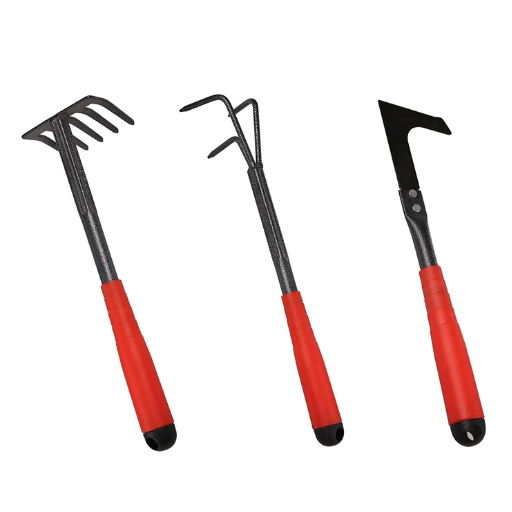
A hand tool brand stands out by consistently delivering quality, durability, and precision. The best brands use high-grade materials that ensure tools can withstand rigorous use without compromising performance. Ergonomic design also plays a key role, as it enhances comfort and reduces user fatigue during extended use. Reliability is critical, with well-engineered tools that provide consistent results every time. Additionally, trusted brands often offer strong warranties and exceptional customer service, providing confidence in their products.
Key Features of the Best Hand Tool Brands
- Durability and Build Quality
Premium hand tool brands are known for their use of high-grade materials such as hardened steel, ensuring tools are resistant to wear and corrosion. This durability guarantees long-lasting performance, even under demanding conditions.
- Precision and Performance
Top brands ensure that their tools are designed with precision to deliver consistent, accurate results. Whether for professional or DIY use, these tools often incorporate advanced manufacturing techniques to optimize functionality.
- Ergonomic Design for Comfort
A hallmark of leading tool brands is an ergonomic design that reduces strain and enhances user comfort during prolonged use. Features such as contoured handles, anti-slip grips, and lightweight materials are emphasized to improve the overall experience.
- Innovative Technology
Many of the best hand tool brands integrate innovative features to cater to modern needs. Examples include ratcheting mechanisms, smart tools with integrated sensors, and modular designs for versatility.
- Comprehensive Product Range
Renowned brands typically offer a diverse catalog that includes everything from wrenches and pliers to specialty tools, ensuring they meet the needs of various users across multiple industries.
- Reputation and Support
Leading brands distinguish themselves with strong reputations for reliability, often backed by robust warranties and dedicated customer support. Positive endorsements from professionals further reinforce their credibility.
The Role of a Hand Tool Manufacturer
Hand tool manufacturers play a crucial role in designing, producing, and distributing tools that meet the varying demands of consumers and industries alike. Their responsibilities include ensuring the durability, precision, and safety of their products. High-quality materials and advanced engineering techniques are employed to deliver tools that withstand rigorous use. Additionally, they focus on innovation, incorporating ergonomic designs and modern technology to enhance user efficiency and comfort. A strong emphasis is also placed on compliance with industry standards, ensuring tools meet regulatory and safety guidelines. By catering to diverse sectors such as construction, automotive, and home improvement, hand tool manufacturers support a wide range of tasks, empowering both professionals and DIY enthusiasts.
Understanding the Tool Industry Standards
The tool industry is governed by meticulously crafted standards aimed at ensuring safety, quality, and efficiency. Prominent organizations like ANSI (American National Standards Institute), ISO (International Organization for Standardization), and ASTM International specify these guidelines. These standards cover aspects such as material durability, performance benchmarks, and ergonomic safety. Compliance ensures tools are safe for users, reliable in performance, and compatible across various applications. For example, ANSI standards often emphasize proper labeling and testing procedures, while ISO focuses on global compatibility and quality management. Adopting these standards not only builds consumer trust but also ensures that tools meet professional expectations across industries.
Who Are the Top Hand Tool Manufacturers Today?
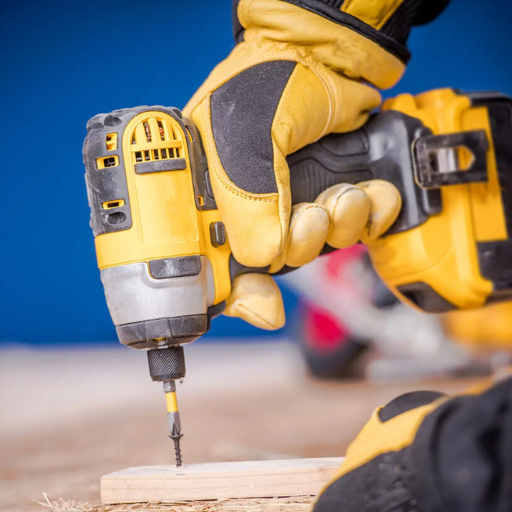
- Snap-on – Known for high-quality tools frequently used in professional automotive and industrial settings.
- Stanley Black & Decker – A global leader offering a wide range of durable and innovative tools.
- Craftsman – Trusted for its reliable and user-friendly tools made for both professionals and DIY enthusiasts.
- Bosch – Renowned for precision engineering and advanced technology in hand tools.
- Klein Tools – Specializes in tools for electricians and other trade professionals, delivering exceptional performance.
Exploring Brands like Klein Tools and Irwin Tools
When comparing brands like Klein Tools and Irwin Tools, it’s essential to consider their strengths and intended applications. Klein Tools is highly regarded among electricians and trade professionals due to its specialized tools, renowned for durability and ergonomic design. Their products, such as insulated pliers and wire strippers, often meet stringent industry standards, making them a top choice for professionals in the field.
Irwin Tools, on the other hand, is celebrated for its versatility and innovative designs, appealing to both DIY enthusiasts and seasoned tradespeople. Their Vise-Grip pliers, for instance, are a hallmark of quality and innovation, widely praised for their functionality and ease of use across various projects.
Both brands excel in delivering reliable tools, but the choice between them ultimately depends on the specific needs, such as trade-specific tools from Klein or broader versatility from Irwin. Whether you’re prioritizing niche performance or general utility, both manufacturers uphold a reputation for quality and user satisfaction.
Understanding the Apex Tool Group
The Apex Tool Group is one of the largest manufacturers of professional hand and power tools globally, renowned for its extensive portfolio that spans multiple industries. Headquartered in Sparks, Maryland, the company was established in 2010 through the merger of two major tool manufacturers, Cooper Tools and Danaher Tool Group. Apex specializes in brands that cater to various markets, from electronics and construction to aerospace and automotive. Key brands under their umbrella include GearWrench, Crescent, Weller, and Lufkin, each respected for its quality, innovation, and durability.
One notable aspect of the Apex Tool Group is its focus on engineering excellence and customer-driven solutions. The GearWrench brand, for instance, is widely celebrated for its breakthrough ratcheting wrenches, while Weller is a leader in soldering technology for electronics. These tools are designed with professionals in mind, offering precision and reliability for the most demanding tasks. Apex’s commitment to innovation and rigorous manufacturing standards ensures its tools perform consistently well and meet diverse user needs.
Apex Tool Group serves a global audience, reaching over 30 countries with a robust distribution network. Its widespread presence ensures accessibility to its premium tools and excellent customer support. The company’s dedication to sustainability and responsible business practices further solidifies its position as a leader in the tool manufacturing industry, emphasizing quality without compromising environmental and social ethics.
The Influence of German Hand Tool Manufacturers
German hand tool manufacturers have a profound impact on the global market due to their precision engineering, innovative designs, and enduring quality. Companies like Wera, Knipex, and Wiha exemplify Germany’s reputation for producing tools that not only meet but exceed industry standards. These manufacturers are renowned for their meticulous craftsmanship, leveraging cutting-edge technologies while maintaining a strong focus on durability and ergonomic usability.
German tools are highly valued across diverse industries, including construction, automotive, and electrical work, as they provide reliability and superior performance under demanding conditions. Additionally, these manufacturers emphasize sustainability by adopting eco-friendly production methods and materials, further aligning with the increasing demand for responsible sourcing. This commitment to excellence and sustainability has positioned German hand tool manufacturers as global pioneers and trusted industry leaders.
Are Tools Made in the USA the Best Choice?
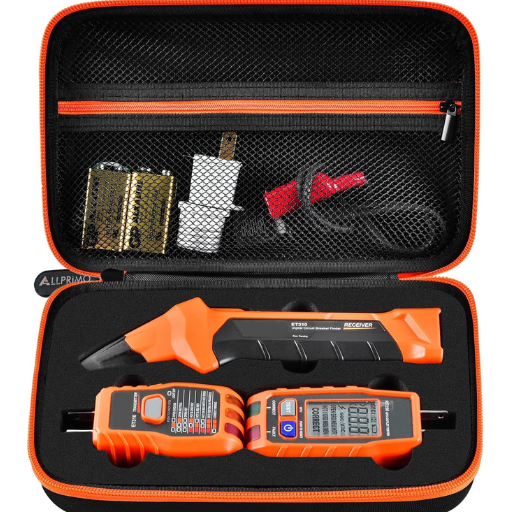
Tools made in the USA are often regarded as some of the best available due to their high quality, precision, and durability. American manufacturers prioritize stringent production standards, ensuring tools that can withstand heavy use and perform reliably. Additionally, many American-made tools are designed with excellent craftsmanship and are backed by strong warranties, providing customers with confidence in their investment. While the “best choice” ultimately depends on specific needs, tools made in the USA are an excellent option for those seeking exceptional performance and long-term value.
Benefits of Choosing Tools Made in the USA
- Exceptional Quality and Durability
Tools made in the USA are renowned for their superior quality and robust construction. Manufacturers adhere to strict quality control standards, using premium materials that ensure the tools can endure rigorous usage over time. This reliability makes them a trusted choice for both professionals and DIY enthusiasts.
- Support for Local Economy
Purchasing American-made tools contributes directly to the domestic economy by supporting local jobs and industries. This investment strengthens communities and helps sustain manufacturing growth within the country.
- Strong Warranties and Customer Support
Many USA-based tool manufacturers provide extensive warranties and superior customer service, reflecting their confidence in the products they create. This commitment ensures customers feel secure in their purchases and offers them peace of mind.
- Environmentally Responsible Production
American manufacturing often implements more sustainable practices compared to international counterparts. This includes adhering to stricter environmental regulations, which reduces the carbon footprint and promotes eco-friendly production methods.
- Innovative Design and Precision Engineering
American-made tools are crafted with precision and cutting-edge innovation, ensuring high performance across a variety of applications. The emphasis on advanced technology and craftsmanship sets these tools apart in terms of functionality and efficiency.
Top American Hand Tool Brands
- Snap-on
Snap-on is renowned for producing premium, high-performance tools designed for professionals. Established in 1920, it is celebrated for its extensive range of products, including ratchets, wrenches, and screwdrivers, all built to last. Technicians and mechanics worldwide rely on Snap-on tools for their durability and precision.
- Craftsman
Craftsman combines affordability with reliability, making it a top choice for hobbyists and professionals alike. Known for products like sockets, hammers, and pliers, Craftsman tools often come with a lifetime warranty, reflecting the brand’s confidence in their longevity and quality. This brand has a rich history and continues to remain a household name in American tools.
- DeWalt
DeWalt has built a solid reputation for innovation and toughness, particularly in its power tools lineup. However, their hand tools, such as utility knives, pliers, and measuring devices, also exemplify their commitment to superior craftsmanship. Backed by decades of experience, DeWalt designs tools for demanding tasks, ensuring reliability and consistent performance.
Comparing International and Domestic Tool Quality
When comparing international and domestic tool quality, several factors come into play, including materials, manufacturing processes, and brand reputation. Domestic tools, particularly those made in the United States, are often praised for their durability, precision, and adherence to strict quality standards. Companies like DeWalt and Milwaukee are prime examples, utilizing advanced technologies and robust materials designed for professional-grade performance. On the other hand, international tools—such as those from European and Asian manufacturers—are often more cost-competitive while offering innovative designs and specialized functionalities suited to specific market needs.
While domestic tools typically prioritize longevity and ruggedness, international tools frequently excel in affordability and diversity. For instance, German toolmakers like Bosch boast precision engineering, while Japanese brands like Makita emphasize lightweight designs and efficiency. Ultimately, the choice between international and domestic tools depends on user preference, budget, and application requirements, as both categories have their strengths and unique contributions to the market.
What Are the Essential Hand Tool Sets for Professionals?
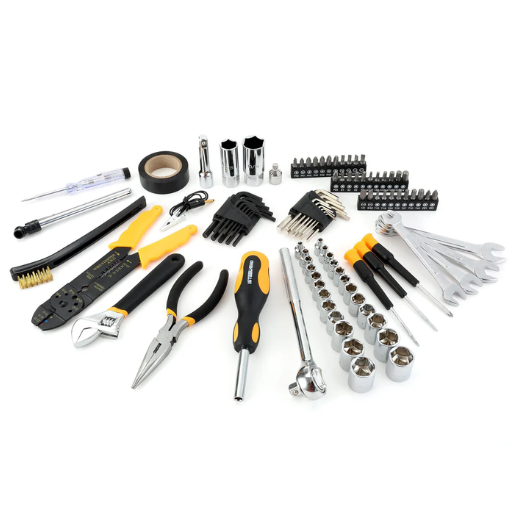
- Screwdriver Set – Includes a variety of sizes and types, such as flathead and Phillips, for handling different fasteners.
- Pliers – A reliable set of pliers, including needle-nose, slip-joint, and locking pliers, is crucial for gripping, bending, or cutting materials.
- Adjustable Wrench – Offers versatility for tightening or loosening nuts and bolts of varying sizes.
- Tape Measure – A sturdy, accurate tape measure is indispensable for precise measurements.
- Hammer – A high-quality claw hammer is essential for driving nails or removing them efficiently.
- Utility Knife – Useful for cutting a variety of materials, from cardboard to rope, with ease.
- Level – Ensures accuracy when checking for horizontal or vertical alignment in construction tasks.
Must-Have Tools for Every Tool Box
- Combination Screwdriver – Versatility is the name of the game with a combination screwdriver. It includes interchangeable tips, covering Phillips, flathead, and other common types, allowing you to handle a variety of screws with one tool.
- Adjustable Wrench – The adjustable wrench is perfect for gripping and turning nuts and bolts of different sizes, making it indispensable for plumbing, automotive, and general assembly tasks.
- Pliers – Needle-nose and slip-joint pliers are crucial for grabbing, bending, or cutting wires and small objects, giving you precise control in tight spaces.
- Measuring Tape – A sturdy 25-foot measuring tape allows you to take accurate measurements for all sorts of projects, from furniture placement to construction.
- Hammer – A durable claw hammer is a go-to tool for driving nails, removing fasteners, and even light demolition work.
- Utility Knife – This multi-tasking tool is perfect for cutting through packaging, trimming materials, or scoring surfaces before assembly.
- Level – Essential for ensuring surfaces are perfectly horizontal or vertical, a level is a must for hanging pictures, shelves, or aligning structural elements.
- Hex Keys (Allen Wrenches) – Often used for assembling furniture or tightening hardware, an Allen wrench set ensures you can tackle specialized fasteners.
- Power Drill and Bits – A cordless power drill with a range of bits allows you to drill holes or drive screws quickly and efficiently, saving time and energy.
Choosing High-Quality Hand Tools for Your Needs
When choosing high-quality hand tools, I always focus on durability and performance. I look for tools made from robust materials like chrome vanadium or stainless steel, as these resist wear and corrosion. Ergonomic designs are also important to me, ensuring comfort and reducing strain during extended use. I prioritize trusted brands with good reviews, as they often guarantee reliability and support. Finally, I consider warranties and replacement policies, as they reflect the manufacturer’s confidence in their product.
Understanding the Range of Hand Tools Available
When it comes to understanding the range of hand tools available, I focus on categorizing them by their function. There are cutting tools like saws and snips, fastening tools such as wrenches and screwdrivers, and striking tools like hammers and mallets. Additionally, I pay attention to specialty tools tailored for specific tasks, like plumbing wrenches or woodworking chisels. By clearly identifying the purpose of each tool, I can select what best suits my needs and ensures efficiency in my projects.
How to Store and Maintain Your Hand Tools Effectively?
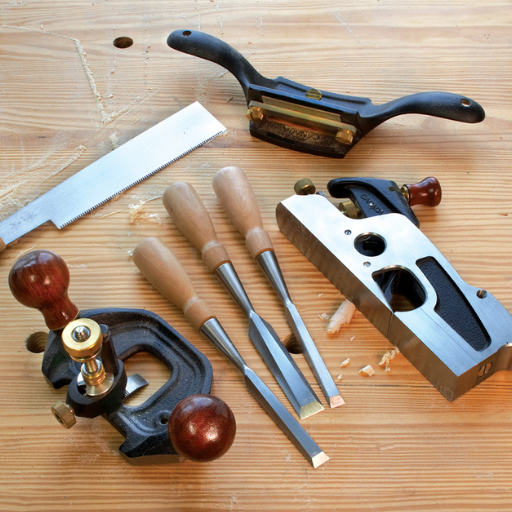
- Clean Your Tools After Use – Wipe off dirt, grease, and moisture to prevent rust and buildup. Use a dry or slightly damp cloth as needed.
- Keep Tools in a Dry Environment – Store tools in a toolbox, cabinet, or wall-mounted organizer to protect them from humidity and dust. Consider adding silica gel packs to absorb excess moisture.
- Oil Moving Parts Regularly – For tools with hinges or moving mechanisms, apply a light machine oil to keep them functioning smoothly.
- Sharpen Cutting Tools – Maintain the sharp edges of saws, chisels, and knives. Regular sharpening improves precision and reduces effort.
- Inspect for Damage – Regularly check tools for cracks, wear, or loose parts and repair or replace them as needed to ensure safety.
Best Practices for Tool Storage
Proper tool storage is critical to maintaining their longevity, functionality, and safety. Here are some effective strategies:
- Organize by Category – Group similar tools together (e.g., wrenches, screwdrivers, or power tools) to make them easier to find and access. Use labeled drawers, bins, or pegboards to streamline organization.
- Maintain a Clean Environment – Store tools in a dry, dust-free area to prevent rust, corrosion, and wear caused by moisture and dirt. Consider using silica gel packs or dehumidifiers in enclosed storage spaces.
- Use Protective Cases or Wraps – For delicate or frequently used tools, durable cases or tool wraps provide an added layer of protection during both storage and transport.
- Vertical or Wall-Mounted Storage – Installing pegboards, hooks, or magnetic strips on walls maximizes storage space while keeping tools readily accessible. This is especially useful in workshops or garages.
- Inspect the Storage Area Regularly – Periodically check your storage area for leaks, pests, or environmental changes that could damage tools. Create a routine for cleaning and organizing to keep the area functional.
Maintaining Cutting Tools and Striking Tools
Proper maintenance of cutting tools and striking tools is essential for their longevity and efficiency. For cutting tools like chisels, saws, and blades, always keep the edges sharp using a whetstone or sharpening file. Regular sharpening not only improves performance but also reduces the risk of accidents caused by dull tools. Additionally, store these tools in a dry environment to prevent rust and use protective covers when not in use.
For striking tools such as hammers, mallets, and axes, inspect them regularly for wear and damage. Ensure that handles are securely attached and free from cracks or splinters, replacing them if necessary. Clean metal parts after use to remove debris and apply a light coat of oil to prevent corrosion.
Extending the Life of Your High-Quality Tools
To extend the life of your high-quality tools, proper care is essential. Start by cleaning tools after every use to remove dirt, sap, or other residues, as these can cause damage over time. Store your tools in a dry, well-ventilated area to prevent rusting, and consider adding moisture-absorbing materials like silica gel packs to further protect them from humidity.
Regularly inspect your tools for damage, such as cracks in handles or dull edges, and address any issues promptly. For cutting tools, sharpen blades frequently to ensure they remain effective and require less force to operate. Lubricate moving parts and apply rust-preventive oil to protect against corrosion, particularly on tools exposed to moisture or stored for long periods. When storing power tools, unplug them, clean the components, and follow the manufacturer’s instructions for maintenance.
Frequently Asked Questions (FAQs)
Q: What are some of the top hand tool brands in the world?
A: Some of the top hand tool brands in the world include SK Hand Tools, Snap-On, Stanley, Klein Tools, and Craftsman. These brands are renowned for their quality hand tools and wide range of hand tools available for both professional and personal use.
Q: Are there specific brands known for quality pliers and hand tools?
A: Yes, brands like Knipex, Channellock, and SK Hand Tools are particularly known for producing high-quality pliers and hand tools. These brands are trusted by professionals in various industries for their durability and precision.
Q: What is the difference between industrial tools and regular hand tools?
A: Industrial tools are typically designed for heavy-duty use in professional settings, with enhanced durability and performance. Regular hand tools may be more suited for home use or light-duty tasks. Hand tool companies often offer a range of tools catering to both segments.
Q: How do tool companies ensure the quality of their tools and accessories?
A: Tool companies ensure quality by using high-grade materials, employing rigorous testing processes, and incorporating feedback from professionals. Many top hand tool brands also have a strong heritage in the hand tool industry, which supports their commitment to quality.
Q: What should I look for when choosing a brand of hand tools?
A: When choosing a brand of hand tools, consider factors such as the range of tools offered, the brand’s reputation for quality, warranty terms, and customer reviews. Popular hand tool brands often provide professional tools with reliability and longevity.
Q: Are there hand tool companies that specialize in garden tools?
A: Yes, companies like Fiskars and Corona specialize in manufacturing garden tools. They offer a variety of hand tools specifically designed for gardening tasks, ensuring durability and ease of use.
Q: What role do power tool accessories play in the hand tool industry?
A: Power tool accessories enhance the functionality and versatility of power tools. They are crucial in the hand tool industry as they allow for a broader range of applications and improve the efficiency of tools and equipment.
Q: Can SK Hand Tools be used for woodworking projects?
A: Yes, SK Hand Tools offer a selection of tools suitable for woodworking projects. They provide precision and durability, which are essential for woodworking tasks, making them a favored choice among woodworking professionals.
Q: How do manufacturing companies contribute to the development of brands and manufacturers in the tool industry?
A: Manufacturing companies play a critical role by investing in research and development, adopting innovative technologies, and ensuring high production standards. This contributes to the advancement and reputation of brands and manufacturers in the tool industry.